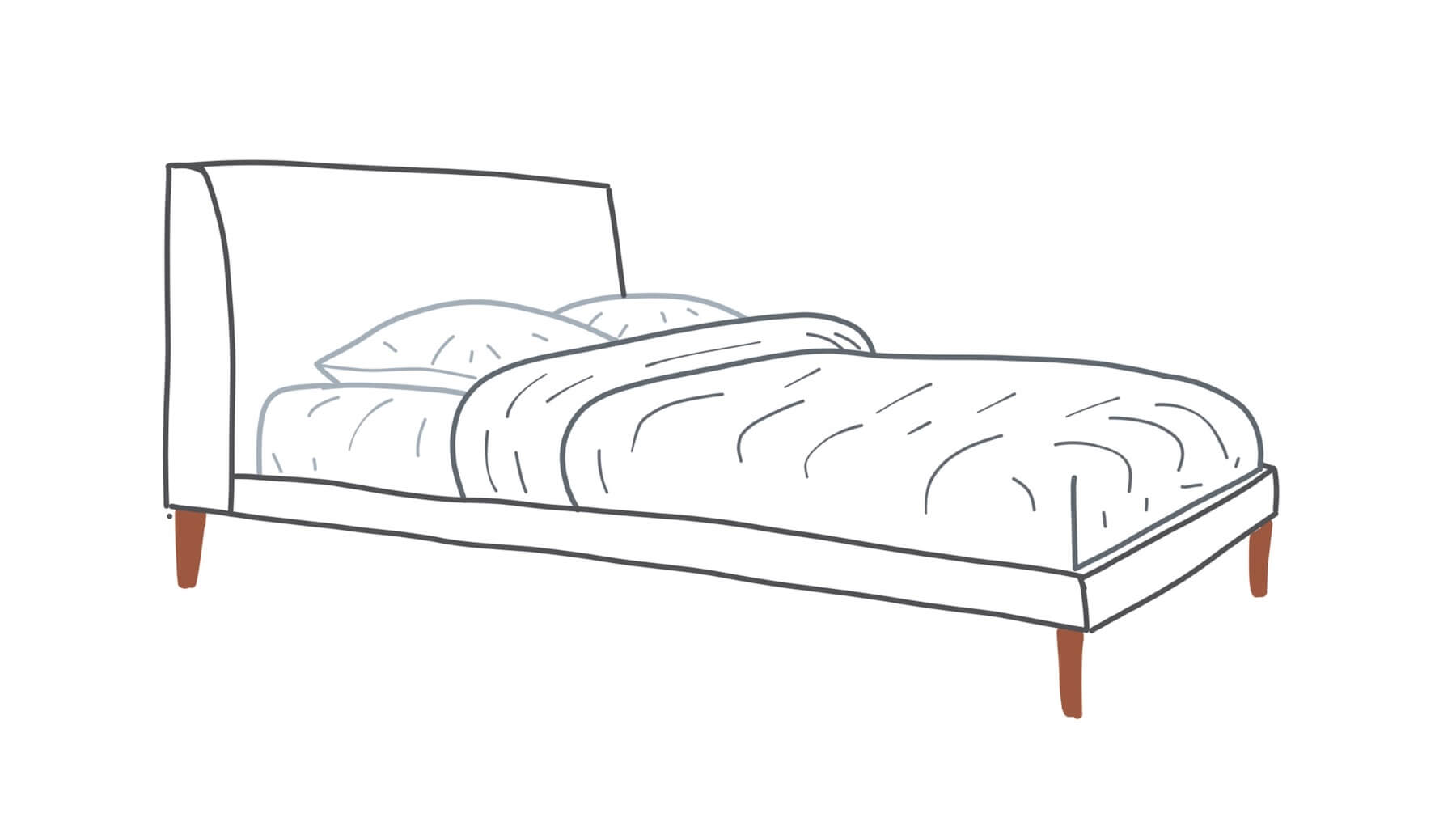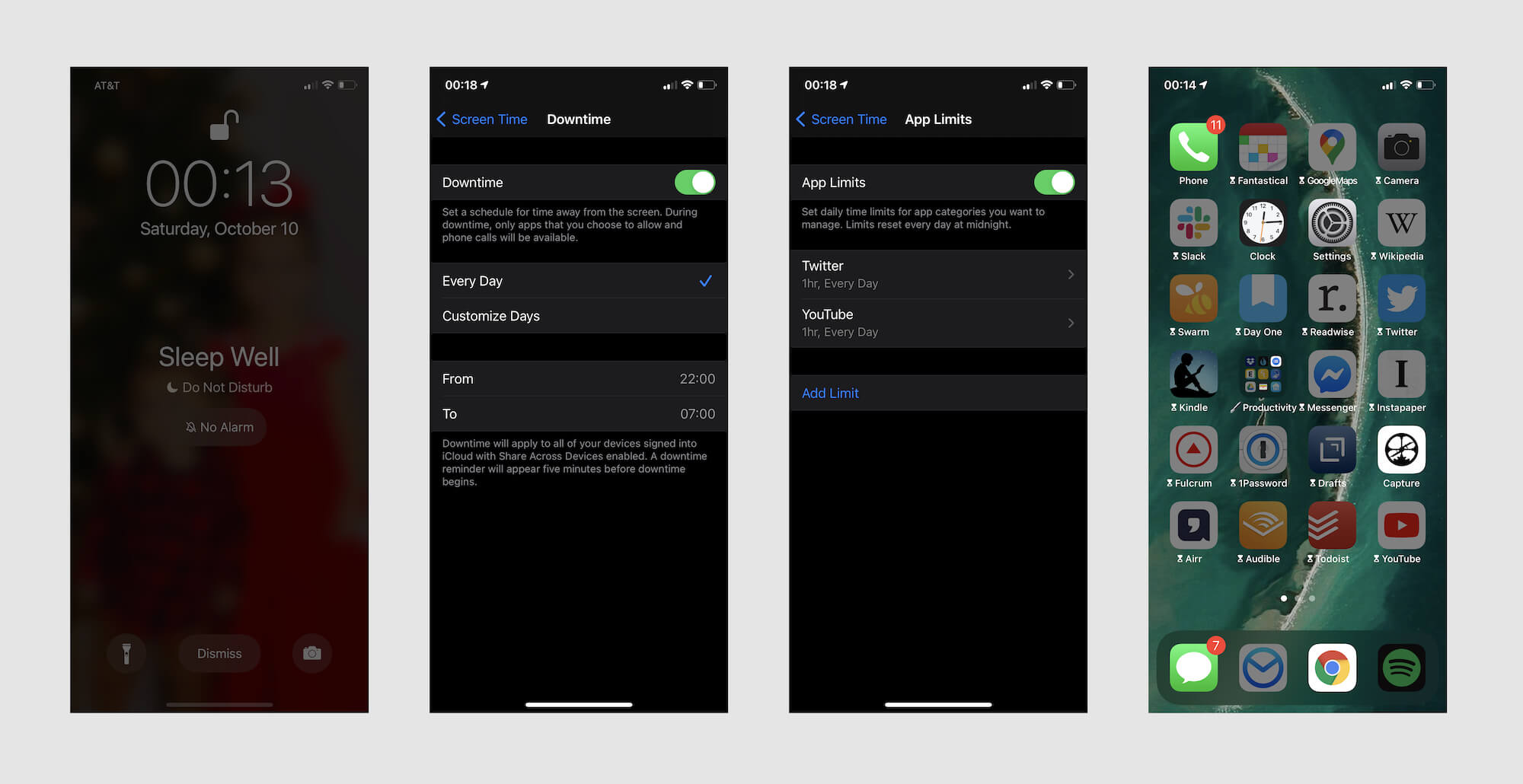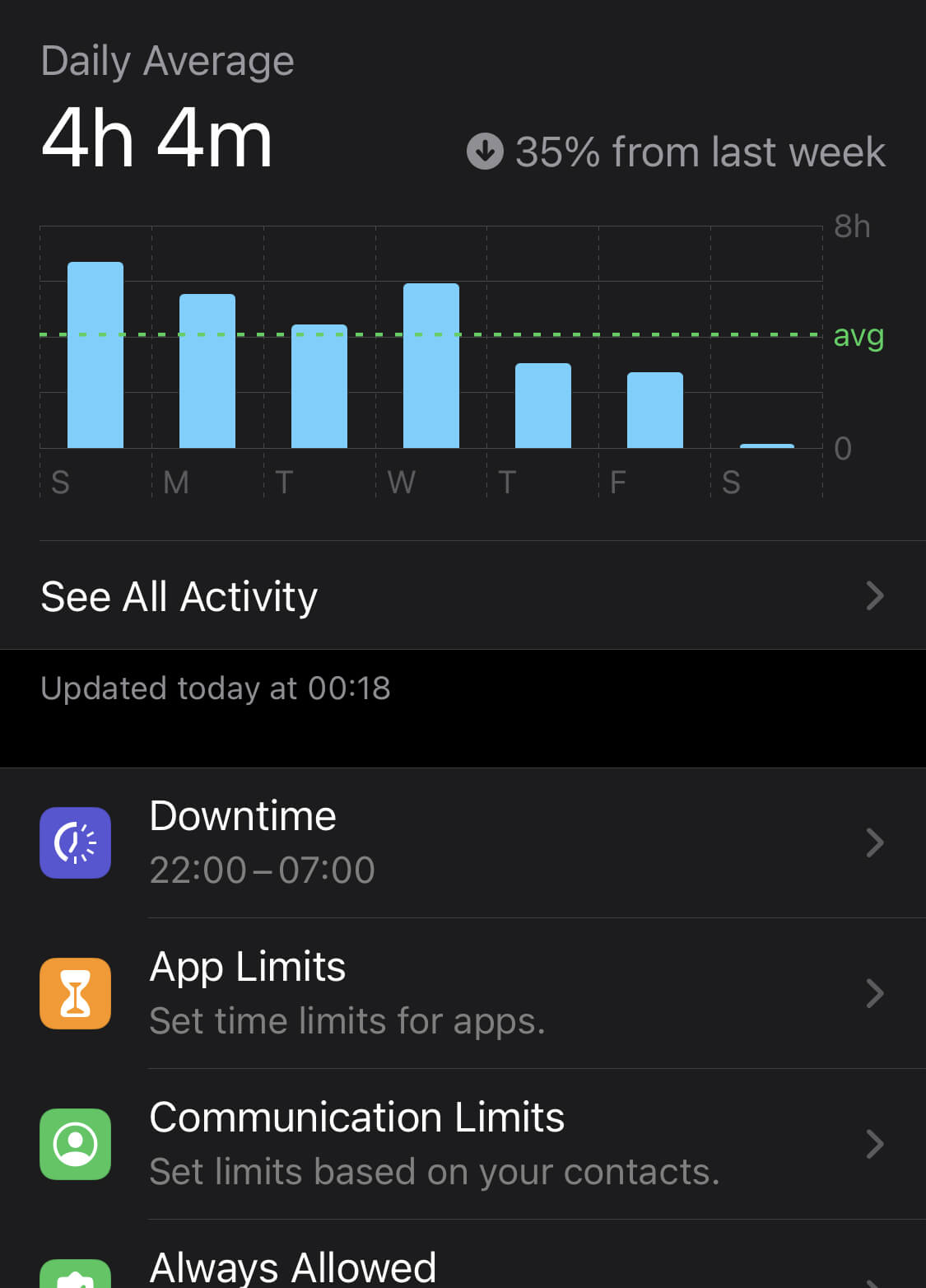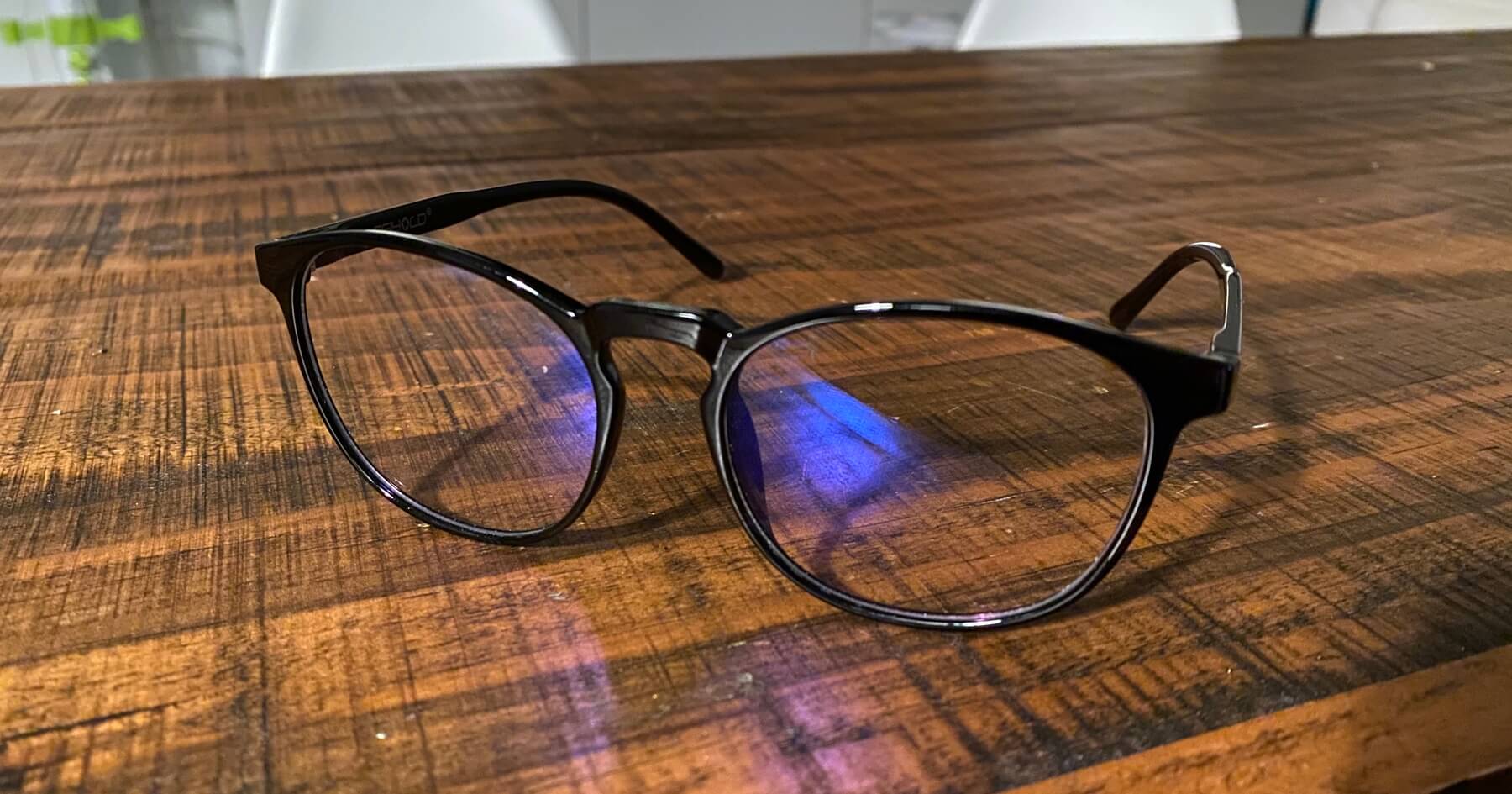Improving Sleep
The last couple of weeks I’ve been working on improving my sleep. My running workouts have felt terrible lately, which I think is a combination of dehydration and fatigue, primarily from compounding lack of quality sleep.
With the pretty simple life I’ve got — a steady working-from-home schedule, and a quarantine preventing most interesting things from happening — a solid sleep schedule should be easy to build and maintain. Apparently that hasn’t been the case for me.
It’ll surprise no one to say that kids make sleep a challenge. Ours sleep well, but they don’t nap, don’t really sleep in (but don’t wake too early), and stay up fairly late for their ages (8:30-9pm). This means any personal time has to happen past 9pm, which also has to include time to clean up the whirlwind house mess they create, doing chores in the kitchen, or any late errands that need to happen before the next day.

One of my goals is to get enough quality sleep to be able to wake up earlier than the kids to get some work in, whether that means writing, workouts, or reading. This could shift in personal time to the AM when my brain is ready to go, rather then late when I’m tired. 10:30pm bed should allow for enough unwinding before bed if I’m targeting a solid 8 hrs. Once I’m asleep I tend to stay that way, with the exception of occasional kid wake-ups, which aren’t too bad. Usually it means a brief interruption but back to bed pretty quickly.
The thing that’s been brutal with bad sleep, too, is the morning routine after staying up too late. 6 hrs of sleep segues right into getting blasted out of bed exhausted by kids who are shot out of a cannon already tearing up the place.
Here are a few things I’ve started over the past 2 weeks to increase sleep:
Reducing screen time
The Screen Time app was reporting between 4-5 hours of screen time per day. That seems absurd, but believable if you total up all the random 10 minute periods of social media, email, and general “checking in” throughout a day. In the last week I’ve dropped that by a couple hours with nothing but putting my phone down earlier in the evening.

Using the “Downtime” settings, I have my device cutting off access to apps after 9pm (you can see how it disables access in the above screenshot). You can override this to open something quickly, but I find that barrier enough even as a reminder of what I committed to; the little hourglass icons say “it’s time to be done for the day.” It’s worked so far. I’ve done more reading in the past week than the previous month total.

Blue light glasses
You can get these from Amazon for cheap. They’re transparent lenses that block blue light. The body’s circadian rhythm is evolved to key in on the reduction in blue light that happens naturally when the sun sets. With our ubiquitous screens, we don’t get this natural wind-down period. Glasses like this can help cut down on the blue light in the evening before you turn out the lights.

We’ll see how these modifications help get sleep back to the top of the priority list.
I’m quite conscious of the fact that fiddling with apps and settings and equipment is silly when it comes to a habit as simple as sleeping1. I still maintain that my biggest sleep hack is (theoretically) the simplest: just go to bed earlier. Easy to say, but I find it harder to do. Hopefully these few tweaks will help nudge my behavior in a better direction.
-
The second biggest is “send the kids to their grandma’s house.” That one tends to be pretty effective. ↩